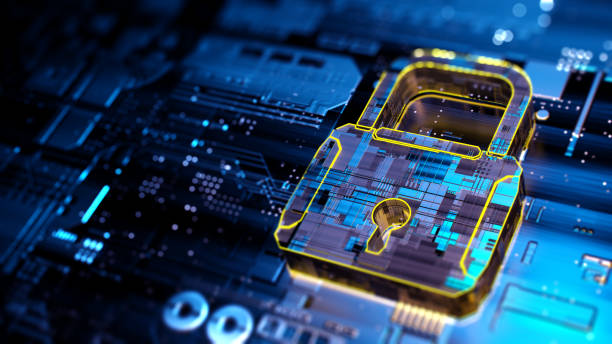
It’s no secret that laptops present a risk to businesses. With constant cyberattacks, it’s no surprise that many companies are struggling to keep their laptops safe with traditional solutions. However, there may be new ways to combat thefts – like using technologies like AI-powered software!
What Does the Term “Laptop Security” Imply?
In order to thwart laptop theft, businesses should educate their staff on how to keep their notebooks safe. There are two types of laptop security: tertiary and first line. The first line includes unusual movement in the notebook’s behaviour suggesting that something is suspicious. The computer will blow a thermal sensor indicator signifying that something is wrong. Additionally, swiping the data will do nothing and the notebook might even obtain a firewall attack to mislead thieves. On the other hand, if a thief makes an unusual move like connecting or disconnecting peripheral devices they might just be tripped up by one of these symptoms.
A Quick Survey of Laptop Thefts in Business
Nearly every cyber-security expert will tell you that if people are concentrating on their screens, there’s a higher chance they won’t notice someone walking away with their laptop. The same can be said for laptops put near employees in public areas such as meeting rooms and conference rooms. The best way to avoid this type of theft is to invest in a simple but effective lock that employees can use to keep their computers safe throughout the day. Keep your eyes open!
How to Lower Your Risk
In order to prevent your laptop or other tech devices from being stolen, there are a few things you should do before and after you leave it unattended. This includes making sure that you connect with the area’s wifi network, keeping your eye on your device for signs of suspicious behaviour, and using a security feature put in place by your service provider. Many laptops and mobile devices have the same security features, but these work best if you have help. The best way to lower your risk is to keep your laptop in a hardened and locked rack. Also, take care not to leave a laptop behind when checking in at a hotel whenever business travelling is involved.
Important Things to Know About Laptop Security
Business security is a sensitive issue. Whether a company has a lot of employees, or just one person running the show, lappy usage can give them the visibility they need. Laptops are designed for mobility and convenience, but also to be stolen – because it’s so easy to take it with you out of the office as soon as you get to your next meeting or client call. One large expense faced by business owners is the replacement of laptop computers; there are also other costs such as keeping track of inventory, app development, and new software installation. To stop losses from becoming more expensive than the laptops themselves, secure your devices to prevent theft, but don’t forget about increasing security for external threats like hackers.
Tips for Keeping Them Safe from Thieves
Laptop theft is a serious problem in both small and large businesses, which includes offices, call centres, and schools. Many laptops are lost or stolen because their security features are either too complex or they do not work. These tips can help prevent laptop thefts: make sure the laptop is locked down with laptops so no one gains access without having to enter PINs, passwords, or generate a new code; secure it according to whatever policies your company has on sensitive information; train everyone not to let others borrow or use equipment; purchase an anti-theft product, and keep information about the laptop secure.
Conclusion
Laptops are able to steal people’s personal information; so in order to have the best protection possible, you should invest in a laptop bag. And while it might seem like the best way to prevent your laptop from being stolen would be not to have laptops, that’s not a realistic solution at all. For many business owners and professionals though, they typically just come away with no evidence of what even happened–just another crime without a suspect.



Recent Comments